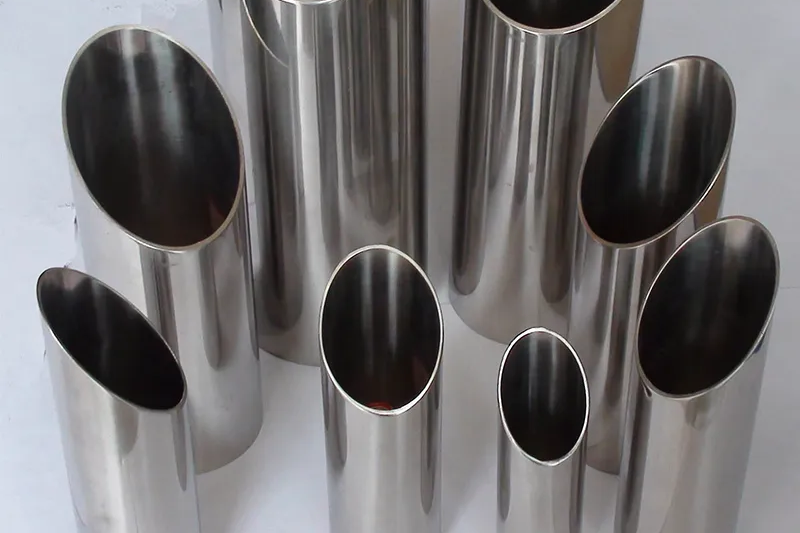Sanitary stainless steel tubes are necessary accessories in all areas where cleanliness and safety matter. From the manufacturing of pharmaceuticals to the processing of food, these tubes provide cleanliness, add dependability and help meet the requirements while allowing the processes to be carried out effectively.
What are Sanitary Stainless Steel Tubes?
Sanitary Stainless Steel Tubes definition is, these tubes are fabricated to provide hygiene for the pharmaceutical, biotechnology, food and beverage and cosmetic industries. It is built of high grade stainless steel which is non-corrosive and can resist high temperatures and pressures. As a result of their smooth internal surfaces, bacterial growth is lessened, and cleaning as well as sterilization is made far more quick and easy.
Applications Across Industries
- Pharmaceuticals:
Sanitary stainless steel tubes assist in the manufacturing of optimum pharmaceutical tubes that are able to transport drugs such as APIs, pharmaceuticals, and sensitive materials during production. They are smooth and inert resulting in the ability of drugs to be free of contamination, maintaining the required regulations of hygiene and cleanliness in addition to the other attributes.
- Food and Beverage:
Hygienic practices are essential in the food and beverage sector hence the use of sanitary stainless steel tubes. Additionally, they allow for the transport of beverages, dairy, sauces, and other foods without the risk of cross-contamination during the entire production and sales cycle. These tubes are non-corrosive to the acids and bases used in food making.
- Biotechnology and Cosmetics:
Cutting edge biotechnical materials as well as sensitive biological materials and cosmetic formulations are handled using sanitary stainless steel tubes. The sterile surfaces of the tubes do not interact with the formulations in them ensuring no contamination and product integrity which is crucial in the production of biopharmaceuticals and cosmetic products.
- Semiconductor Industry:
Applications of sanitary stainless steel tubes even extend to the semiconductor industry where these tubes find their use in the delivery of ultra pure chemicals and water to the semiconductor wastage fabrication processes where cleanliness is of utmost importance. By being clean themselves, they guarantee low defects during semiconductor fabrication which in turn ensures high quality and high yield.
Advantages of Sanitary Stainless Steel Tubes
Hygienic Design: The factor ensures that the bacterial growth is controlled and that the product is not contaminated by chemicals due to the presence of smooth internal surfaces and non-corrosive materials.
Durability: The tubes do not bend or collapse even when exposed to high pressure, extreme temperatures, and strong caustic substances.
Ease of Maintenance: The surface is smooth so that it can be cleaned and sterilized easily thus reducing the downtime and interruption to operations.
Compliance: Sanitary tubes made of stainless steel comply with the most difficult regulatory requirements, which include FDA, USDA and 3-A sanitary standards.
Innovations in Sanitary Tube Technology
Technological advancements in the sector of manufacturing have improved the performance and scope of sanitary stainless steel tubes. Precision welding methods make sure that there are no leakage at the junctions. On the other hand, automated polishing processes make the outside of the tubes unvaryingly smooth and clean enough for any use. With electropolishing and similar advancements, the surface of the tubes can be made smoother and more corrosion resistant to enable a longer use and lower maintenance costs of the tubing.
Environmental Considerations
Due to the long life-cycle of stainless steel and its recyclability, it is environmentally friendly. By minimizing the need to replace a sanitary stainless steel tube, there is less waste, thus, contributing to environmental protection and conservation. Because they can withstand even the harshest cleaning agents, the amount of water and chemicals required to clean them is significantly lower, which allows for eco-friendly manufacturing efforts as well.
Conclusion
Sanitary stainless steel tubing is essential for the industries where hygiene, quality assurance, and rules®ulations have to obey. They aid in the protection of seal integrity, make harsh environments tolerable, and allow for the easy performance of tasks, hence find applications in the pharmaceutical industries, food processing, biotechnology, etc. With continuous advancements in technology enabling innovative methods of manufacturing, sanitary stainless steel tubes will always be the key instruments in guaranteeing safety, purity, and efficient productivity in a variety of different field applications.

 EN
EN
 AR
AR
 CS
CS
 DA
DA
 NL
NL
 FI
FI
 FR
FR
 DE
DE
 EL
EL
 HI
HI
 IT
IT
 JA
JA
 KO
KO
 NO
NO
 PL
PL
 PT
PT
 RO
RO
 RU
RU
 ES
ES
 SV
SV
 TL
TL
 LT
LT
 SR
SR
 SL
SL
 UK
UK
 TH
TH
 TR
TR
 FA
FA
 AF
AF
 GA
GA
 IS
IS
 MK
MK
 AZ
AZ
 BN
BN
 LO
LO
 LA
LA
 MN
MN
 MY
MY
 KK
KK
 KY
KY


